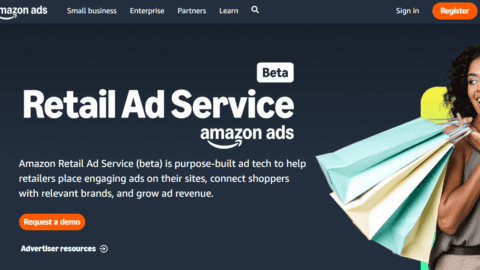Cannabis is in growth mode: the industry posted sales between $24.5 and $27 billion in 2021 and reached an estimated 11,800 retailers in 2022, according to data from the MJBiz Factbook. A Gallup poll found that 68% of Americans believe marijuana should be legal and 16% of adults aged 26 and over used cannabis in the past year, making the trajectory clear —traditional retailers, take note.
“The trend we’ve seen over the past five or six years is that mainstream companies are increasingly coming into the industry, and they are definitely eyeing it,” said Chris Walsh, CEO of MJBizDaily in an interview with Retail TouchPoints. “I spend a lot of my time speaking at mainstream events, because they’re putting a cannabis-specific pavilion on the floor of a bakery show or a packaging show. They’re hearing it from exhibitors and they’re hearing it from attendees, even if they’re not getting directly involved. They’re curious, and they’re saying, ‘What are the opportunities? What are the challenges? How do you even get this business? Is it worth it?’”
Now is the time for interested third parties to plan their strategy for entering the cannabis sector, according to Walsh. He predicts that the “big catalyst” that will open the market to outside players — from retailers in related markets like alcohol to national banks and Wall Street investors — could happen at any time in the coming months and years. The cannabis industry itself is already far more mature than it was a few years ago, and competition will only get fiercer from here.
Retailers considering the opportunity should keep in mind that:
- Flexibility has become paramount post-pandemic: The pandemic was a boon for cannabis with retailers in the space declared essential, home-bound consumers trying their first cannabis products and new delivery methods becoming legal in some areas. Now consumers expect omnichannel shopping options for cannabis just like they do for everything else.
- Both medical and recreational sales require great CX: Medical and recreational sales follow different regulations in some states, and both kind of customers have specific needs, but a great overall customer experience can help retailers meet everyone’s needs regardless of why they’re shopping; and
- Opportunities abound even without federal legalization: Four states have cannabis on the ballot this November and there are rumors that the federal government could pass a bill that would normalize banking for the cannabis industry.
Cannabis Demands Reflect Retail as a Whole
The pandemic led to a surge in cannabis interest as homebound consumers with access to stimulus money looked for safe recreational activities. Sales rose from $13 billion in 2019 to $20 billion in 2020, and cannabis retailers’ status as essential businesses let them introduce new methods of selling to their customers. Cannabis retail is now an omnichannel business in many states, much like more traditional segments.
“[Since the pandemic] consumers are really looking for much greater flexibility in the way that they interact and shop with us,” said Rhonda Kratz, SVP of Retail Operations at Ayr Wellness in an interview with Retail TouchPoints. “We’re seeing a greater focus on ecommerce. There’s a surge in things like curbside pickup and overall convenience. During the pandemic, we were allowed to do things that we weren’t prior. This is just created much more convenient for consumers, and they’re definitely coming to expect that now in a post pandemic environment.”
However, demand for multiple fulfillment options isn’t the only way cannabis sales are beginning to reflect the rest of retail. Cannabis retailers are managing the impacts of inflation, just like everyone else, including reduced customer visits and greater interest in promotions. Retailers planning to enter the space in the future can use this as a time to learn how to best navigate economic turmoil when dealing with cannabis — though lessons gained from traditional goods also may apply.
“Cannabis is one of those products, much like liquor and cigarettes, that folks are not willing to part with,” said Kratz. “We believe we’re going to continue to see the spend. Maybe the average transaction size, the number of items that folks pick up or the frequency with which they shop will get stretched a hair, but they will continue to spend and they will continue to remain in the category. For us, it’s about making sure that we have the very best quality products and great promotional activities. We also have an unmatched consumer experience in the store so that folks will select us.”
Medical or Recreational, Customer Experience Comes First
Medical and recreational cannabis sales often face different regulations and have different customer bases, but they both come down to providing the right service for the right shopper. Retailers looking into cannabis may want to focus on the recreational side of the business, which has a bigger potential audience.
“What we find is the patient base — the number of registered patients — typically starts to decline after a state legalizes recreational too because the patients say, ‘I can get what I want from a recreational store,’” said Walsh. “Maybe they have to go through the hurdle of talking to a doctor or getting a recommendation. Typically it can be cheaper to buy medical cannabis, but they find a lot of times it’s not worth the hassle. They’ll pay a little bit more and just go to whatever store they want and don’t have to see a doctor, so there’s really a convergence. We don’t know where it’s going to end up in the long term, but I have a feeling that it’s kind of going to blend together into just ‘cannabis.’”
However, there are still opportunities for serving medical customers. Ayr Wellness, which operates more than 70 dispensaries in eight states, serves both sides of the business at some of its locations. The retailer puts an emphasis on well-trained staff to deliver personalized experiences, as well as well-stocked inventory to ensure medical customers can always get what they need exactly how and when they want it.
“The one thing that we do know and what we have seen is there are a number of medical patients who either have been reluctant to shop in a recreational store or believe that it’s going to be way too busy and ‘Oh my gosh, I’m going to be seen in a recreational store and I’m really a medical patient,’” said Kratz. “We’ve done a lot of work to make sure that our convenience is the same or better as it always has been, and that our medical patients know that no matter what we are there for them, and we will always be there for them and prioritize their care.”
Cannabis Has its Challenges, but the Future is Bright
Cannabis legalization started on the West Coast, where the industry is now much more mature. As legalization has expanded to the East Coast in states including New Jersey, Connecticut and Massachusetts, greater opportunities currently exist on that side of the country for new players. Now Missouri, Arkansas, South Dakota and Maryland all have ballot initiatives that could allow sales in those states, which would open up even more new markets.
“Every year we see at least several states legalize one way or another,” said Walsh. “That means new markets. That means new business opportunities for people who are not in cannabis and who see this industry and its potential. They have the opportunity to win licenses to grow cannabis, to process it and to infuse products like brownies and gummy bears. Then there are opportunities on the retail side of course, to open dispensaries or recreational marijuana stores. It all depends on the structure of that state’s industry — how many licenses there are, how competitive they are, if there are caps on them, what the regulations are. There’s usually a wave of new business opportunities that come with these new markets.”
However, Walsh warned that legalization can proceed at different speeds depending on the state and its regulations. Some move quickly, while some can take years before stores can finally open for business.
But the federal government may be making changes that affect the cannabis industry and could open it up to new levels of investment in the near future. “Banking is a huge issue,” said Walsh. “The big banks won’t serve the industry because it’s a federally illegal substance that they’re dealing with. These companies aren’t able to get SBA loans and they can’t get traditional banking. That also limits the investment money and M&A activity from outside the industry. If there’s a federal change coming in the next couple of months, which people could say could be by early January, that’s a real catalyst for the industry.”
Retailers interested in breaking into the cannabis industry have a lot to learn and preparation is key to making the most of that important moment. But existing businesses must also factor their own best practices into their strategies. Walsh said that many cannabis retailers are taking cues from mainstream retailers’ plans and a synthesis of both industries could create the breakout experience of the future.















